In a much-acclaimed account, Jackson describes the contours and contradictions of a remarkable life and a career he describes as ‘Winston Churchill’s appointment with destiny’.
Churchill-by Ashley Jackson
KSh 700.00
In a much-acclaimed account, Jackson describes the contours and contradictions of a remarkable life and a career he describes as ‘Winston Churchill’s appointment with destiny’.
1 in stock
| SKU: | 9780857388346 |
|---|---|
| Categories: | Biographies & Memoirs, Historical Biographies, History books |
Related products
-
-
River God (The Egyptian Novels)
KSh 400.00Ancient Egypt. Land of the Pharaohs. A kingdom built on gold. A legend shattered by greed…. Now the Valley of Kings lies ravaged by war, drained of its lifeblood, as weak men inherit the cherished crown. For Tanus, the fair-haired young lion of a warrior, the gods have decreed that he will lead Egypt’s army in a bold attempt to reunite the Kingdom’s shattered halves. But Tanus will have to defy the same gods to attain the reward they have forbidden him, an object more prized than battle’s glory: possession of the Lady Lostris, a rare beauty with skin the color of oiled cedar – destined for the adoration of a nation, and the love of one extraordinary man.
KSh 650.00 -
Remaking Mutirikwi: Landscape, Water and Belonging
KSh 9,100.00Finalist for the African Studies Association 2016 Melville J. Herskovits Award
The Mutirikwi river was dammed in the early 1960s to make Zimbabwe’s second largest lake. This was a key moment in the Europeanisation of Mutirikwi’s landscapes, which had begun with colonial land appropriations in the 1890s. But African landscapes were not obliterated by the dam. They remained active and affective. At independence in 1980, local clans reasserted ancestral land claims in a wave of squatting around Lake Mutirikwi. They were soon evicted as the new government asserted control over the remaking of Mutirikwi’s landscapes. Amid fast-track land reform in the 2000s, the same people returned again to reclaim the land. Many returned to the graves and ruins of past lives forged in the very substance of the soil, and even incoming war veterans and new farmers appealed to autochthonous knowledge to make safe theirresettlements. This book explores those reoccupations and the complex contests over landscape, water and belonging they provoked. The 2000s may have heralded a long-delayed re-Africanisation of Lake Mutirikwi, but just as African presence had survived the dam, so white presence remains active and affective through Rhodesian-era discourses, place-names and the materialities of ruined farms, contour ridging and old irrigation schemes. Through lenses focused on the political materialities of water and land, this book reveals how the remaking of Mutirikwi’s landscapes has always been deeply entangled with changing strategies of colonial and postcolonial statecraft. It highlights howthe traces of different pasts intertwine in contemporary politics through the active, enduring yet emergent, forms and substances of landscape.
Joost Fontein is Director of the British Institute in Eastern Africa and Lecturer in Social Anthropology at the University of Edinburgh.
Published in association with the British Institute in Eastern Africa.
-
Achebe and Friends at Umuahia
KSh 17,290.00WINNER OF THE ASAUK FAGE & OLIVER PRIZE 2016 This is the first in-depth scholarly study of the literary awakening of the young intellectuals who became known as Nigeria’s “first-generation” writers in the post-colonialperiod. Terri Ochiagha’s research focuses on Chinua Achebe, Elechi Amadi, Chike Momah, Christopher Okigbo and Chukwuemeka Ike, and also discusses the experiences of Gabriel Okara, Ken Saro-Wiwa and I.C. Aniebo, in the context of their education in the 1930s, 1940s and 1950s at Government College, Umuahia. The author provides fresh perspectives on Postcolonial and World literary processes, colonial education in British Africa, literary representations of colonialism and Chinua Achebe’s seminal position in African literature. She demonstrates how each of the writers used this very particular education to shape their own visions of the world in which they operated and examines the implications that this had for African literature as a whole. Supplementary material is available online of some of the original sources. See: http://boybrew.co/9781847011091_2 Terri Ochiagha holds one of the prestigious British Academy Newton International Fellowships (2014-16) hosted by the School of English, University of Sussex. She was previously a Senior Associate Member of St Antony’s College, University of Oxford.
-
Salamis : The Greatest Naval Battle of the Ancient World,
KSh 795.00“Salamis” tells the story of possibly the greatest naval battle of the ancient world. Involving hundreds of thousands of combatants and well over a thousand triremes – the ranking naval war engine of the time – it was the culminating battle in a twenty-year struggle between the Persian Empire and the Greeks. Against all odds – and with the help of a little treachery, a brilliant strategy and a lucky wind – the Greeks defeated the Persians, and with it began the roll-back of the Persian Empire, and the beginning of the Hellenic imperium. This epic tale is told through the individual stories of twelve characters, six form each side, each of which played a major role in the battle and its aftermath.
-
The War Within: New perspective on the civil war on Mozambique (African Edition)
KSh 2,000.00The 1976-1992 civil war which opposed the Government of Frelimo and the Renamo guerrillas (among other actors) is a central event in the history of Mozambique. Aiming to open up a new era of studies of the war, this book re-evaluates this period from a number of different local perspectives in an attempt to better understand the history, complexity and multiple dynamics of the armed conflict. Focusing at local level on either a province or a single village, the authors analyse the conflict as a “total social phenomena” involving all elements of society and impacting on every aspect of life across the country. The chapters examine Frelimo and Renamo as well as private, popular and state militias, the Catholic Church, NGOs and traders. Drawing on previously unexamined sources such as local and provincial state archives, religious archives, the guerrilla’s own documentation and interviews, the authors uncoveralternative dimensions of the civil war. The book thus enables a deeper understanding of the conflict and its actors as well as offering an explanatory framework for understanding peacemaking, the nature of contemporary politics,and the current conflict in the country.
Eric Morier-Genoud is a Lecturer in African history at Queen’s University Belfast; Domingos Manuel do Rosário is Lecturer in electoral sociology and electoral governance at Eduardo Mondlane University, Maputo, Mozambique; Michel Cahen is a Senior Researcher at the Centre National de la Recherche Scientifique (CNRS) at Bordeaux Political Studies Institute and at the Casa de Velázquez in Madrid.
-
Just for Fun: The Story of an Accidental Revolutionary Paperback
KSh 400.00Once upon a time Linus Torvalds was a skinny unknown, just another nerdy Helsinki techie who had been fooling around with computers since childhood. Then he wrote a groundbreaking operating system and distributed it via the Internet — for free. Today Torvalds is an international folk hero. And his creation LINUX is used by over 12 million people as well as by companies such as IBM.
Now, in a narrative that zips along with the speed of e-mail, Torvalds gives a history of his renegade software while candidly revealing the quirky mind of a genius. The result is an engrossing portrayal of a man with a revolutionary vision, who challenges our values and may change our world.
KSh 1,000.00 -
Afro-European Trade in the Atlantic World The Western Slave Coast, c. 1550- c. 1885
KSh 14,560.00From 1550 to colonial partition in the mid-1880s, trade was key to Afro-European relations on the western Slave Coast (the coastal areas of modern Togo and parts of what are now Ghana and Benin). This book looks at the commercialrelations of two states which played a crucial role in the Atlantic slave trade as well as the trade in ivory and agricultural produce: Hula, known to European traders as Grand Popo (now in Benin) and Ge, known as Little Popo (nowin Togo). Situated between the Gold Coast to the west and the eastern Slave Coast to the east, this region was an important supplier of provisions for Europeans and the enslaved Africans they purchased. Also, due to its positionin the lagoon system, it facilitated communication along the coast between the trading companies’ headquarters on the western Gold Coast and their factories on the eastern Slave Coast, particularly at Ouidah, the Slave Coast’s major slave port. In the 19th century, when the trade at more established ports was disrupted by the men-of-war of the British anti-slave trade squadron, the western Slave Coast became a hot-spot of illegal slave trading.
Providing a detailed reconstruction of political and commercial developments in the western Slave coast, including the transition from the slave trade to legitimate commerce, this book also reveals the region’s position in the wider trans-Atlantic trade network and how cross-cultural partnerships were negotiated; the trade’s impact on African coastal “middlemen” communities; and the relative importance of local and global factors for the history of a region or community.Silke Strickrodt is Visiting Research Fellow at the Department of African Studies and Anthropology at the University of Birmingham. She is co-editor (with Robin Law and Suzanne Schwarz) of Commercial Agriculture, the Slave Trade and Slavery in Atlantic Africa (James Currey, 2013).

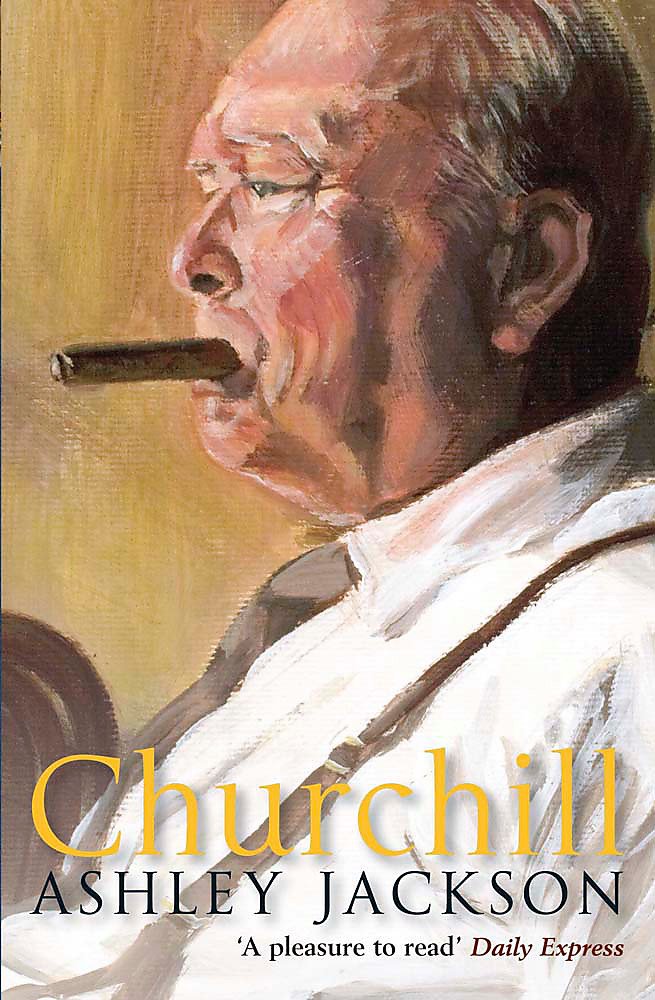
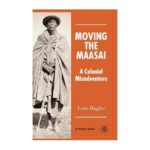

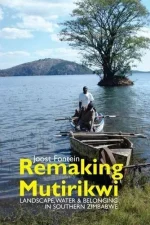
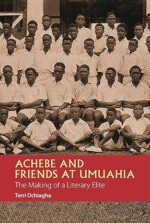
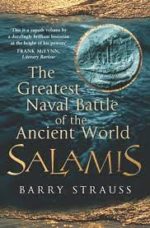


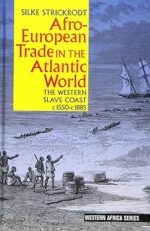
Be the first to review “Churchill-by Ashley Jackson”